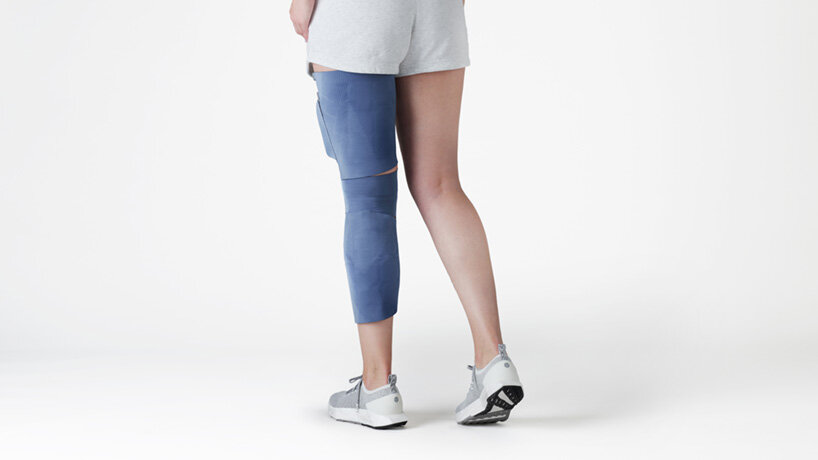newly unveiled bionic clothing by yves béhar + CIONIC integrates AI to expand mobility
the neural sleeve: design meets technology
Bionic clothing brand CIONIC collaborates with Swiss industrial designer Yves Béhar and his firm fuseproject to unveil the ‘Neural Sleeve’ — a revolution in human mobility which thoughtfully hybridizes mobility technology with inclusive design. The FDA-cleared bionic leg wearable makes use of artificial intelligence to enable greater independence for those living with such mobility differences as sclerosis, stroke, cerebral palsy.
CIONIC Founder and CEO Jeremiah Robison initially embarked on this ambitious project when his daughter was diagnosed with cerebral palsy. His mission became one of improving the independence for the hundreds of millions living with impaired mobility.
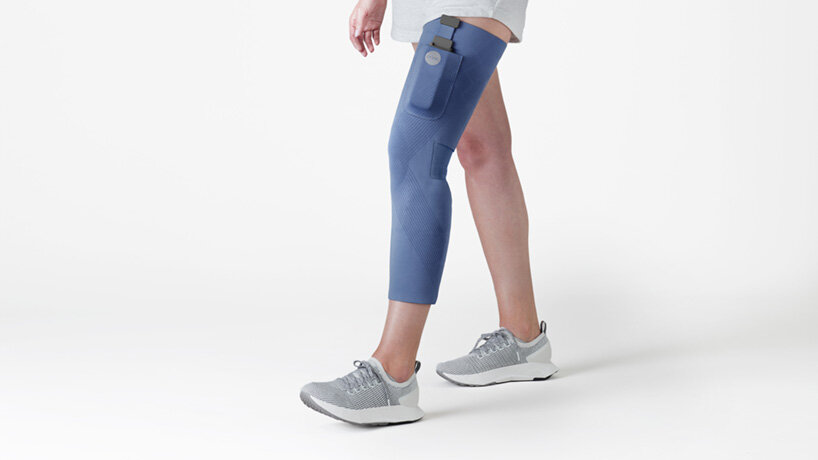 images courtesy CIONIC
images courtesy CIONIC
regaining control with augmented movement
Developing the Neural Sleeve, Yves Béhar and CIONIC prioritized user experience, seeking a design for everyday wear which is easy to put on and remove, and one which suggests a sports product rather than a medical product. With lightweight, breathable fabric available in multiple colors and sizes, the Neural Sleeve feels like an athletic legging. Once paired with the CIONIC app, the user is in control of their own mobility journey.
Béhar, CEO and Founder of fuseproject elaborates: ‘It was imperative to us that the product not only has a significant improvement for users physically but also to remove some of the emotional burdens that come with having a mobility difference. This meant building a product in tandem with potential users so we understood their needs and could create the best possible solution. Good design serves to humanize technology and provide life-changing solutions.‘
CIONIC is now accepting pre-orders here for early 2023 delivery.
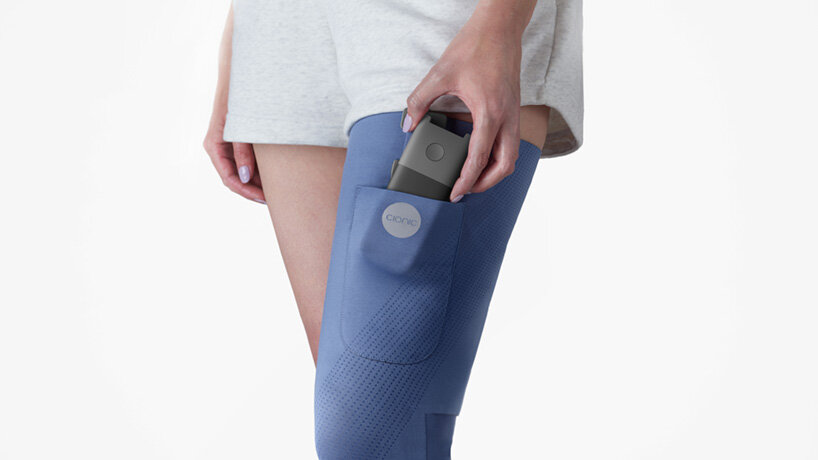
CIONIC Founder and CEO Jeremiah Robison explains: ‘Building bionic clothing that can augment human movement takes a thoughtful and holistic approach. It starts with advanced technology capable of adapting to each user’s mobility needs to deliver meaningful outcomes.
‘Then we designed it to be comfortable to wear and effortless to use. From software to soft goods, our team of experts have pushed the boundaries of human-machine interface to deliver the future of assistive technology. Ultimately we are creating not just a single solution, but a platform for bionic clothing that can analyze, predict, and augment human movement for all,’ says Robison.
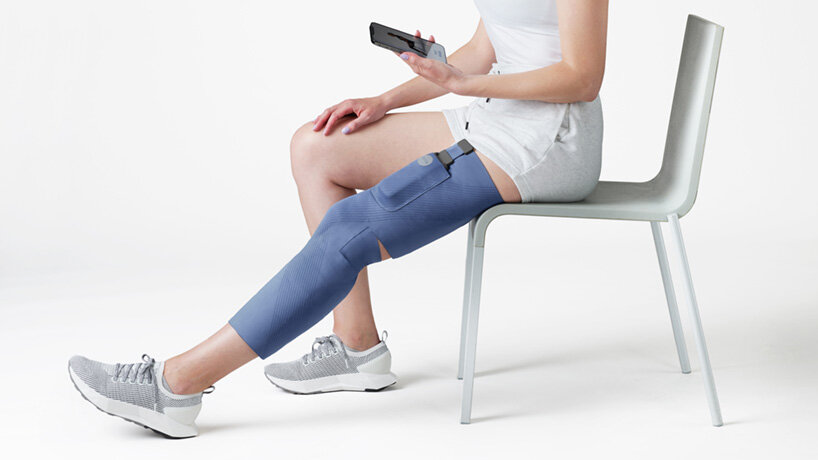
real life results
A statement released by CIONIC writes: ‘CIONIC trial participants across multiple locations demonstrated strong improvement on the two key measures associated with foot drop: dorsiflexion at heel strike (94% of users), and ankle inversion during swing (88% of users). Notably, when combining the two measures, there was an average improvement of 9° for participants (5° is clinically significant).
‘CIONIC has also been conducting home usability trials to understand the impact of the Neural Sleeve on mobility over time. Not only has reported mobility improved for many of these users, but the number of users experiencing moderate to severe pain was reduced by 60%, and the number of users experiencing moderate to severe anxiety or depression was reduced by 75%.’
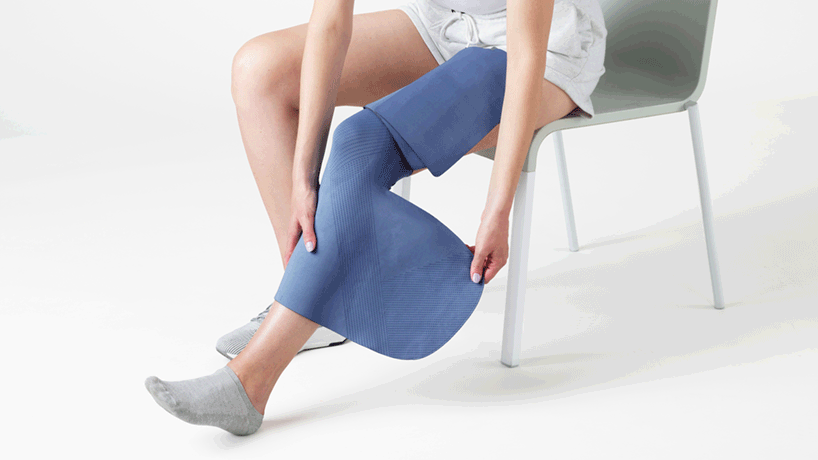
Dr. Jacqueline Nicholas, System Chief Neuroimmunology and Multiple Sclerosis at the OhioHealth MS Center advocates for the Neural Sleeve after two of her MS patients have walked better than they had in ten years after programming the device to their needs. She comments: ‘This is the first comprehensive system that addresses key muscle groups of the leg, which means it has the potential to improve mobility and function with continued use. It’s unlike anything I’ve ever seen.’
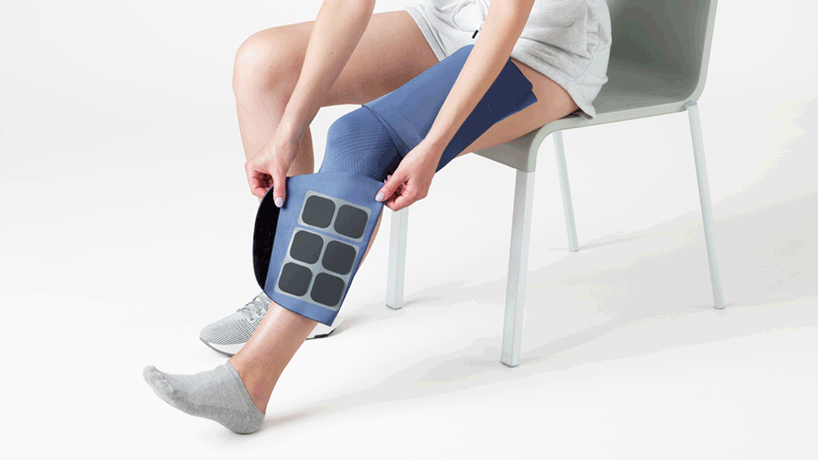
Beverly Chaidez, who lives with MS and a participant in the home usability trials, describes her experience with the Neural Sleeve: ‘When I started the home usability trial I was only able to walk for about five to 10 minutes at a time, and I used a wheelchair for mobility outside of the home. Today, I can walk for 40 to 50 minutes at a time and I haven’t used my wheelchair in over a month. I feel hopeful and optimistic that I can regain a lot of things that I lost.’
